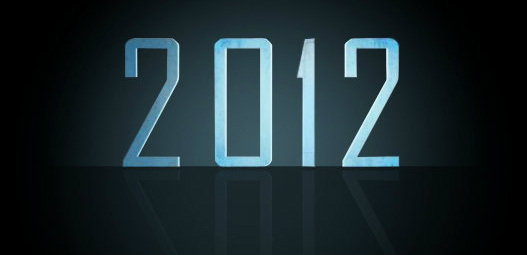I like reading SEC filings for publicly held companies. They provide so much interesting insight to what they reveal about their business and their market, as well as their risks etc... Often they throw so much in there that it is tough to see what they are really saying. But, wanted to post this Investor Presentation from Radnet, Inc. It isn't 10-Q or 10-K, but it has some interesting information and framing that is helpful for anyone in the medical imaging industry.
|
Occupy Wall-Street. The 99%. The 1%. Income inequality. Taxes. Welfare. Health care. Bankruptcy.
These are buzz words we have been seeing recently. There is a lot of propaganda being spilled out each day. Let's define a main goal in life, We all want to pursue happiness, live life, and be free. Let's cut through some of the rhetoric and be honest for a minute, so we can assess how we can accomplish the goal. Inequality is bad. Poverty is bad. The 7 deadly sins are seductive, but harmful and, well deadly. They are destructive to the main goal. Also, Capitalism is bad. Wait, you say! Capitalism is NOT bad! No, of course it is. It feeds greed, uses lust to sell its products, encourages gluttony, inspires envy, covets slothfulness wealth brings, causes wrath, and creates pride. Luck and skill and inheritance create income inequality. Multi-national corporations cause havoc to countries, environment and families. Don't argue against these things because they are true. Capitalism causes harm. Since there are problems with capitalism, maybe the answer is more regulation. Perhaps socialize some things that are vital to life, such as electricity, water, sewer, and health-care. We should subsidize some things such as education and housing. We should have more government involvement to help reduce inequality and many of the harmful effects of capitalism. People take advantage of capitalism, they lie, steal, cheat and murder. So we need a good system to draft laws and a strong police to enforce those laws. Now the world is actually better off. But now, this results in a larger government, more bureaucracy and a lot of power entrusted in a few people. What comes of this? Well lust can be satisfied now by using government position, if you have power over a budget then gluttony is a temptation, pursuit of power fuels envy in those that have it, losing power causes wrath, greed forces government to overstep its bounds, and the receivers of the wealth distribution inherit sloth. Government intervention causes harm. These harm is not brought about by structure, we cause harm to each when we try to look out for just ourselves. We as humans are flawed. This won't change. But the balance for whether when we need to decide between capitalism or more government comes down to two things. First, it is really hard to stop a government when it has gone too far. Cuba, Venezuela, North Korea, Soviet Union, Nazi Germany, Iraq, China and Iran are all examples. Recently we have seen Soviet Union, Egypt and Libya change, but it is very hard to do. The second advantage that capitalism holds is an invisible hand. This does not mean just the self interest motivation, but cooperation in markets without coercion. It just works. An invisible hand helps capitalism to make the world better and this only works in capitalism. You don't need be a historian to look at where we have come and see that, with all its problems capitalism has brought us pretty far over the past 250 years. It has brought more people out of poverty. It has created innovation, saved more lives, advanced democracy and freedom, education and increased happiness across the world. The evidence is clear as we look back at history and what is occurring now around the world, we are better off with more capitalism. Governments should try to increase markets and intervene in order to preserve life, liberty and property. When in doubt though, more capitalism and markets. Creating a great place to work is something that in most (many?) places seems to be overlooked because some of the perks are deemed to be expensive and that productivity will be the same regardless of the benefits. Or that the only thing people care about is increased pay. I know if you ask most of us what would make us happy is more money. Of course it is. But we are very difficult at predicting what would make us happy in the future. All of us are. Watch this video below- I know it is long- and let me know if you would be willing to accept a little less money to work in a great place like this (or as it promotes itself) Productivity in places where it takes some creativity will go up in environments like this. If people are eating healthier during lunch on site they will be more productive after lunch then going and grabbing some junk food and fighting off fatigue. The risk is always as a company grows those perks become very significant. Taking away just the Herman Miller chairs won't impact creativity and productivity. So there will be a tendency to cut that cost. If you are adding 10 employees a year that will save you $10,000+. So then that cost is eliminated. Maybe employees want to eat out of the office one day a week. So, you have 100 employees and that can save $1,000-2,000 a week. That can be an annual savings of over $100,000. So let's trim that back. This is the beginning of the end. It starts to change the culture. It is noticed. It changes productivity and then this will impact performance and then there is a real need to cut back even more. So salaries are cut, "because we offer such great benefits" which are on their way to being cut even more. DON'T DO IT. Make your culture a great place to be. Make it a place people can earn a good living. Make it a place where people are treated like people. Do it because it is the ethical thing to do. Do it because you want to be glad to get up in the morning. Do it because it will make the company better. Do it because turnover will be lower for your great people. Do it because you can recruit the best people you can get. Do it because you want to be a hero. Do it because the world is flat. Do it because it works. Here is a picture of me on left (David Fuhriman) and Bill Halligan on the right at the RSNA show in Chicago, 2011. Working on a couple of other post about reactions to the show. Coming soon :)
Great post from Daniel Pink- Quoted below: Man, am I glad it’s a new year. I need a re-boot. And as I contemplated my resolutions for 2012, I reached out to Kelly McGonigal for some guidance. Kelly is a Stanford lecturer and author of the terrific new book, The Willpower Instinct (Buy it at Amazon,BN.com, or IndieBound) that explores the psychology, economics, and neuroscience of self-control and that offers some compelling (and counter-intuitive) advice. Here’s our short interview: You say that instead of making a New Year’s resolution, we should instead pledge not to change something in our lives. Why? Most people make a fundamental mistake when thinking about their future choices. We wrongly but persistently expect to make different decisions tomorrow than we do today. I’ll skip the gym today, but I’m sure I’ll go tomorrow. I’ll put this on my credit card today, but no more shopping for a month. I don’t want to get started on the project now, but I’ll tackle it first thing in the morning. The more people have faith in their futures selves, the more likely they are to indulge today. In fact, just knowing you’ll have the chance to choose again tomorrow increases the chance you’ll choose habit or vice today. Behavioral economics provides an interesting solution. When you want to change a behavior, aim to reduce the variability in your behavior, not the behavior itself. What do you mean by “variability?” Take, for example, a smoker who wants to quit but can’t. The typical approach is to set a goal to smoke fewer cigarettes – or even quite out right. But imagine instead that the smoker simply tries to smoke the same number of cigarettes every day. Research shows that they will gradually decrease their overall smoking– even when they are explicitly told not to try to smoke less. Hmmm. How does that work? They are deprived of the usual cognitive crutch of pretending that tomorrow will be different. Every cigarette becomes not just one more smoked today, but one more smoked tomorrow, and the day after that, and the day after that. For someone who really wants to quit, this is exactly the reality check that makes change possible. So what do we say to ourselves in the moment of temptation to give ourselves that reality check? Force yourself to view every individual choice as a commitment to all future choices. So instead of asking, “Do I want to eat this candy bar now?” (while lying to yourself that you won’t eat another candy bar all week), ask yourself, “Do I want the consequences of eating a candy bar every afternoon for the next year?” When tempted to procrastinate, don’t ask yourself “Would I rather do this today or tomorrow?” Instead, ask “Do I want the consequences of always putting this off until tomorrow?” Okay. So what you are you resolving not to change this year? Over the years, I’ve made a number of no-change resolutions that have stuck, including exercising every day (instead of taking the consequences of not exercising every day). So I know it works! This year I’m aiming to reduce variability in my sleep. I’ve been an inconsistent sleeper all my life with a lot of temptations to both stay up and sleep in. There’s fascinating research coming out about the physical and mental health benefits of not just getting enough sleep, but keeping a predictable sleep schedule. People should feel free to email me at 2 AM or check my Twitter feed timestamp so to see I’m keeping my word. Happy New Year. Maybe the changing of a calendar is just symbolic. Maybe it is a little more than that. Or maybe it doesn't matter because the effect is real. Entering a new year enable us to push aside some of the past and say that this is a new time with new opportunities. Even though we don't really segment life by years as we look back and look forward, it is a great way to group our activities.
For me and Bern Medical, 2012 is looking like a great opportunity and perhaps the best year of my life. In fact, I am determined to make it the best year of my life. I am doing what I love, with great people, doing something that makes a difference (that I can actually measure). And personally I have around me people that I love and friends that I like. I challenge you to make this the best year of your life. Not in a resolution that you know you will break kind of way, but in a live everyday to its fullest type of way. Here is to 2012, the best year of our lives. |
BERN BLOGBlog written by: Other Useful blogsArchives
June 2013
|




